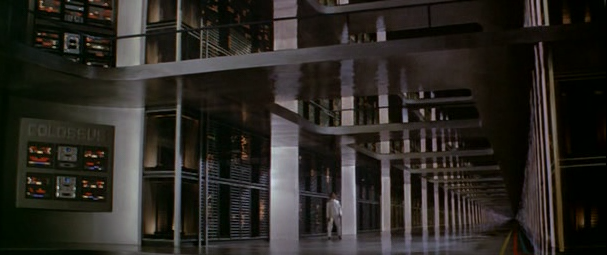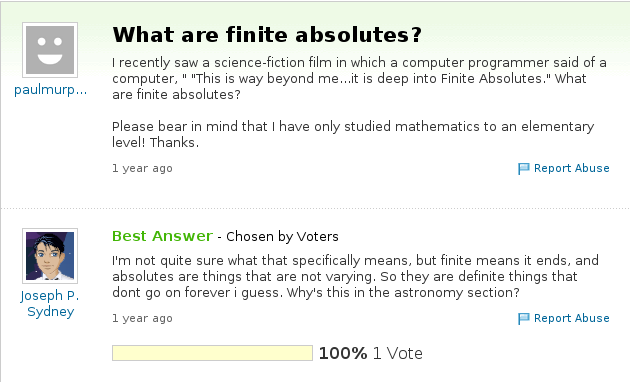User:Dave Young/PotemkinTechnologies/2012
Trimester 2, Year 1.
Description
Inspired by the set design of science-fiction films, I became interested in how computers are represented in popular cinema during the Cold War. Before it became another accepted domestic appliance, the experience of computer technologies was mediated largely through fictions and corporate propaganda - either cinematic or literary. My aims were to explore the aesthetics of the computer as it was represented in science fiction cinema at this time, and link it to the real world issues surrounding the military development of computers as a Cold War control mechanism: a method for the Americans to simulate control over a chaotic system of international relations.
My project had two outcomes - a physical object, and a re-edit of a science fiction film called Colossus. The physical object was an attempt to creative a 'performative' computer interface, linking back to the science fiction set design aesthetic of ambient facades. It was agreed that this outcome was not particularly successful and did not engage with any criticality the issues surrounding the use of computers at this time.
The second outcome - the re-edit of Colossus, turned out to be a more interesting way of talking about the issues I'm most interested in. I am now working on a film essay as a means of discussing these issues in greater depth, and I am also developing a framework for a lecture with more re-edited films as an accompaniment. I think the assessment re-aligned my interests and helped focus them on to a method with which I can more critically engage with my research material.
Media
Photos
File:Potemkintech1.jpg File:Potemkintech2.jpg

Dr Forbin switches on Colossus for the first time

What are finite absolutes anyway?
Video
This Thing is Deep in Finite Absolutes
Essay
Precognitive Systems: How Cybernetics Could Control the Future
